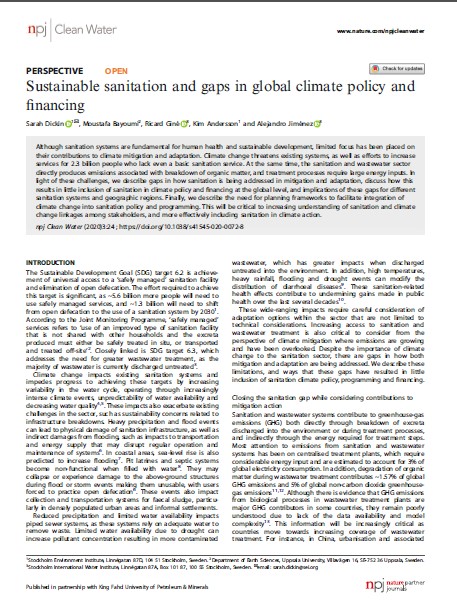Sustainable sanitation and gaps in global climate policy and financing
 |
article Jan 2020 ; 7 pages
Aut. Sarah Dickin
Ed. Nature Partner Journals -
Téléchargeable sous format: PdF
Téléchargeable chez l'éditeur
Abstract:
Although sanitation systems are fundamental for human health and sustainable development, limited focus has been placed on their contributions to climate mitigation and adaptation. Climate change threatens existing systems, as well as efforts to increase services for 2.3 billion people who lack even a basic sanitation service. At the same time, the sanitation and wastewater sector directly produces emissions associated with breakdown of organic matter, and treatment processes require large energy inputs. In light of these challenges, we describe gaps in how sanitation is being addressed in mitigation and adaptation, discuss how this results in little inclusion of sanitation in climate policy and financing at the global level, and implications of these gaps for different sanitation systems and geographic regions. Finally, we describe the need for planning frameworks to facilitate integration of climate change into sanitation policy and programming. This will be critical to increasing understanding of sanitation and climate
change linkages among stakeholders, and more effectively including sanitation in climate action.
Editeur/Diffuseur: |
|
Nature Partner Journals - - Etats Unis |
En cas de lien brisé, nous le mentionner à communication@pseau.org